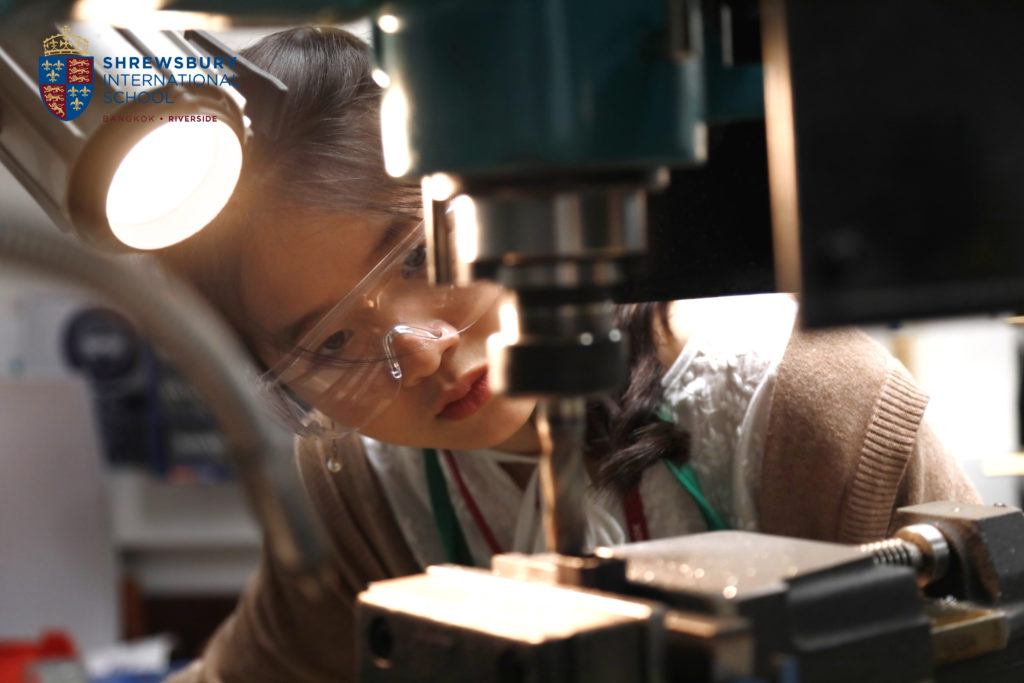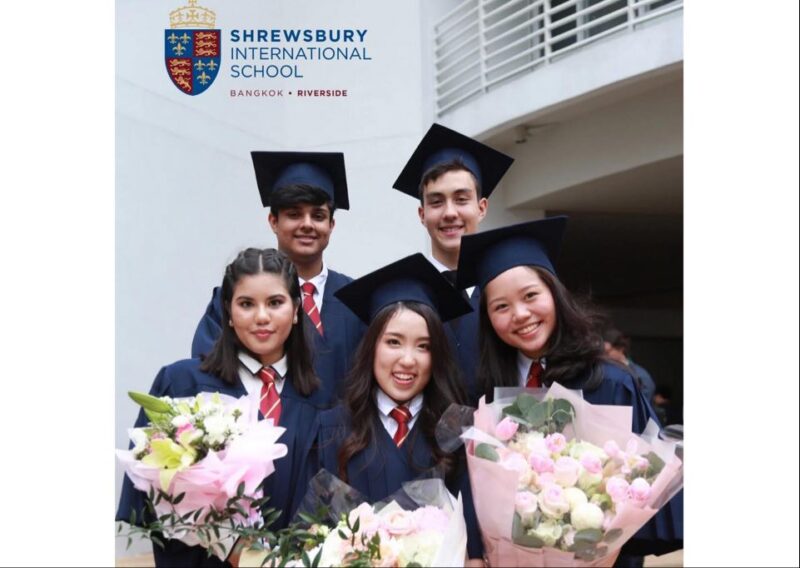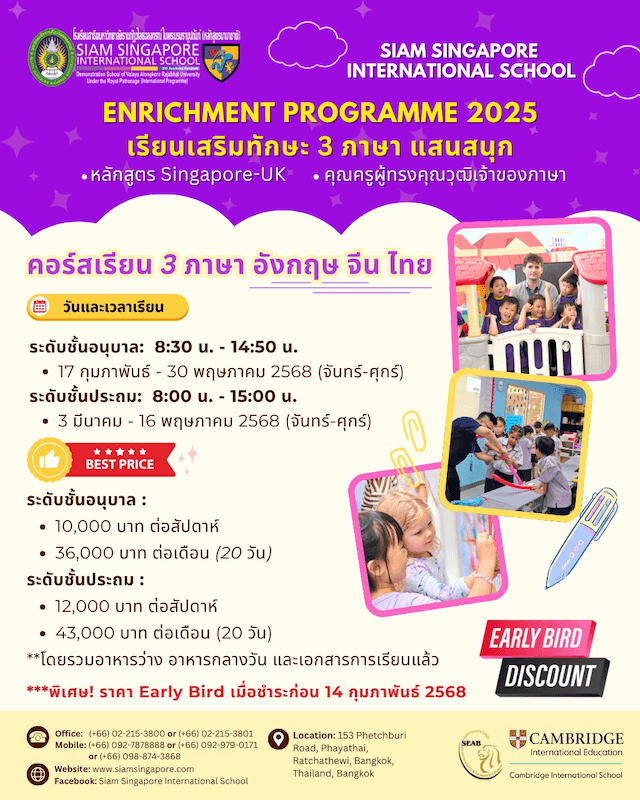If you’re considering an international school that follows a British curriculum (or your children are already enrolled in one), the chances are that you’ve heard the terms “A-Levels” and “iGCSE” Examinations. But what exactly are they?
British International Schools base their curriculums on the English National Curriculum. In the UK, full time education is compulsory for children between the ages of 5 and 16, with clear provision made for students, based on their ages, in specific developmental Key Stages. A defined curriculum accompanies each Key Stage, with clear assessments and examinations to monitor and track each child’s progress. Each Key Stage encompasses core subjects, including English, Mathematics, Science and Information Technology, as well as foundation subjects in the Humanities, Creative and Performing arts, Modern Foreign Languages and Physical Education. Many top-tier schools also provide extensive co-curricular opportunities, which aim to complement academic subjects and broaden skill sets.

Co-curricular opportunities provide important balance to academics, and evidence interests and passions outside the syllabus which are of particular interest to American Universities
Shrewsbury International School Bangkok Riverside is one such school, located in central Bangkok, which follows the British education model. Operating since 2003, it has gained a reputation as one of the leading International Schools in Asia based on its consistent position at the top of iGCSE and A Level results tables, University placements and numerous competitive successes. Their curriculum is based around the English National Curriculum, adapted to meet the needs of students in an international context.
As any student following the British model reaches their high school years they will enroll in the international version of the GCSE exam (iGCSE) and then move on towards their final two years 12-13 to study A Levels.
The International General Certificate of Secondary Education (IGCSE)
The International version of the General Certificate of Secondary Education (iGCSE) comes into the picture when students are in Key Stage 4 (ages 14 to 16). First introduced over two decades ago, the iGCSE originally allowed students overseas, whose first language was not necessarily English, to take the GCSE exam. Today, it is the world’s most popular international qualification, taught in thousands of schools worldwide.
Over the course of two years, the iGCSE studies encompass core and elective subjects. The elective subjects on offer range from school to school, but all will provide iGCSEs in English, Mathematics and Science as a required minimum.

In August 2021, Sciences, Maths, Robotics and Computing will have a new home in Shrewsbury’s 17,000sqm Innovation Building, benefiting students from Year 7 upwards
Shrewsbury Bangkok offers a breadth of over 20 elective subjects, including Art, Business, Computing, Design Technology, Drama, Economics, a choice of 4 languages and Psychology. As students begin to focus on their passions and interests, maintaining a wide range of specialisms allows the opportunity to excel in any given area.
“Shrewsbury’s iGCSE programme provides essential qualifications in core subjects – Mathematics, English and the Sciences – but we also offer the breadth. We maintain a wide range of courses at iGCSE level to allow our students to continue to develop their academic passions, nurtured by a highly skilled and experienced team of professionals – the same teaching team who will eventually take our students into A-Level and become key references for university applications”.Robert Millar, Vice Principal and Head of Senior School at Shrewsbury International School Bangkok Riverside
Upon completion of Key Stage 4, students sit for the iGCSE examinations; a formal assessment of the child’s attainment in his or her compulsory education. Depending on subject, assessment includes written, oral, coursework and practical assessment. Grades range from A* to G, with A* being the highest. Students who are then planning to attend university continue onto Key Stage 5, also known as the Sixth Form, when they are 16 to 18 years old, to complete two years of advanced courses.
Advanced Level General Certificate of Education (A Levels)
The Advanced Level General Certificate of Education (or A Level) courses are in Years 12 and 13. A Level courses are highly regarded by universities and employers – and will allow students access to universities around the world, including the UK, USA and Australia. They are usually taken after successful completion of a previous iGCSE course. While A Levels are generally a two-year course, an intermediate ‘AS level’ is obtained within the first year in some subjects, depending on the examination board.

Building on the broad key stage curriculum in Key Stage 3 (Years 7-9) and iGCSE courses that follow in Key Stage 4, the A level programme gives students a choice of subject combinations that fit their interests, and meet entry requirements of either broad or specialised university programmes and careers
Established over 50 years ago, an A Level programme offers great depth and breadth through a challenging and academic learning path. Typically, students choose three or four subjects in their first year of study [Y12 in the UK curriculum] before narrowing to three in the second year [Y13]. Students focus on subjects where their abilities, passions and strengths lie and in areas that really interest them, many with a view to the entry requirements of specific university courses beyond.
After studying a broader selection of topics in their iGSCEs, where they have to attain a passing grade in both Maths & English to proceed on towards A Levels, many students experience a renewed passion for learning with full autonomy in the subjects they study and spurred on by a focus on their academic goals beyond school. There are hundreds of A Level subjects to choose from, encompassing the Arts, Science, Health and Social Care as well as others – and students can mix and match choices to discover what they really want to do.
“A levels are challenging and rigorous, and that’s why they are so valued by universities. The beauty of A-levels is they give students real choice, allowing them to mix and specialise in the subjects they’re passionate about; to channel their curiosity and delve deeper into subjects which best prepares them for further academic study and careers”
Robert Millar, Vice Principal and Head of Senior School at Shrewsbury International School Bangkok Riverside
At Shrewsbury Bangkok, the same specialist teachers provide stability across iGCSE and A Level, with students able to access a consistent and highly qualified team throughout these important periods of study and examination. Alongside this, Shrewsbury also recognises the value for its students in providing a broad variety of co-curricular and extra-curricular opportunities. The Duke of Edinburgh International Award (DoEIA) programme is just one such offering at Shrewsbury. There, the DoEIA programme is open to all students from Year 10 upwards (at Bronze, Silver and Gold levels), and incorporates elements of adventure, skill and service that nurture important life skills and experiences.

The A Level programme has been the primary qualification for further education in the United Kingdom, and is ‘a tried and tested’ model, often referred to as the ‘Gold Standard’ by global universities.
The results and university placements achieved by students at Shrewsbury International School Bangkok Riverside already mark the school out as Thailand’s premier provider of British curriculum education for children aged 3-18 years. And their ambition to improve yet further is underlined by this August’s opening of a new sports performance complex and 17,000sqm innovation building (including 18 new science laboratories, 16 mathematics classrooms, Sixth Form centre and spaces for computing and robotics).
Applications now welcome for August 2022 entry (and immediate entry in selected year groups). For more information, and how to apply, please visit the website: https://www.shrewsbury.ac.th/riverside
or contact the admissions team today: admissions@shrewsbury.ac.th , tel: (+66) 02 675 1888














